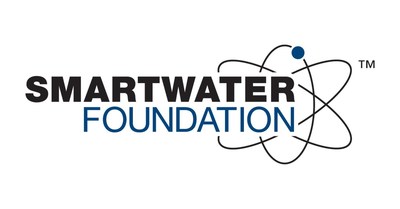 |
LONDON, May 7, 2020 /PRNewswire/ -- Hundreds of thousands of priceless artifacts in several museums in Iraq have been protected from the threat of theft and looting by marking them with a unique invisible code, in a new security protocol that is to be made available around the World to protect 'at risk' museums, historic and archaeological sites.
Funded by the British Council, approximately 273,000 artifacts held in two Iraqi museums have been protected using this new approach. The project allows the priceless objects to be traced back to the site they were stolen from, making it easier for law enforcement agencies to prove theft, thereby creating a powerful deterrent to would-be thieves and traffickers.
The innovative project, led by renowned archaeologist Professor Roger Matthews at the University of Reading, utilizes a specially prepared SmartWater forensic liquid to attach a unique chemical signature onto museum objects. The solution is invisible to the naked eye, only detectable under UV black light and scientists only need to recover a speck of SmartWater to prove which location the artifact was stolen from, the date the solution was applied and by whom.
Tests by scientists at Reading University established that the forensic liquid causes no damage to stone, pottery, metal, or glass and can withstand intense heat, harsh solvents, and extreme environmental conditions for decades. All the costs of R&D were funded by the SmartWater Foundation, the not for profit arm of The SmartWater Group, one of the World's fastest growing risk management companies.
Professor Matthews said: "The items in the museum collections we worked with are priceless, with regards to the immense cultural value they offer to Iraq. This initiative effectively gives objects a chemical fingerprint, allowing them to be traced if they fall into the wrong hands. Moreover, it provides law enforcement agencies with the necessary evidence to arrest and prosecute those found in illegal possession of artifacts."
The artifacts include inorganic pieces from all periods of Iraq's past; stone-age axes to Neolithic pots dating back to 7000 BC when the world's first agricultural villages were being established. In 2003, and during the ISIS occupation of Mosul between 2014 and 2017, items like this were frequently looted from museums, later resurfacing on international antiquity markets.
The problem of theft of artifacts from museums, archaeological and historic sites is growing, with temples in India being targeted, as well as archaeological sites in South America. In the USA, Native American sites are at risk, particularly the remote burial grounds that can be an easy target for thieves.
Colette Loll, Senior Advisor to the SmartWater Foundation, the not for profit arm of the SmartWater Group. said: 'Due to their SmartWater forensic signature, these important museum collections are now traceable and can be repatriated if stolen or trafficked. We are essentially putting the art market on notice - forensic markers present a real risk to sellers AND buyers of stolen artifacts."
Phil Cleary, CEO of the SmartWater Group said "We're delighted that we've been able to support the implementation of this important initiative in Iraq, as it is totally aligned with our mission to reduce the risk of theft, wherever it occurs."
Notes to Editor:
Photo - https://mma.prnewswire.com/media/1164929/SmartWater.jpg
Logo - https://mma.prnewswire.com/media/1164930/SmartWater_Foundation_Logo.jpg